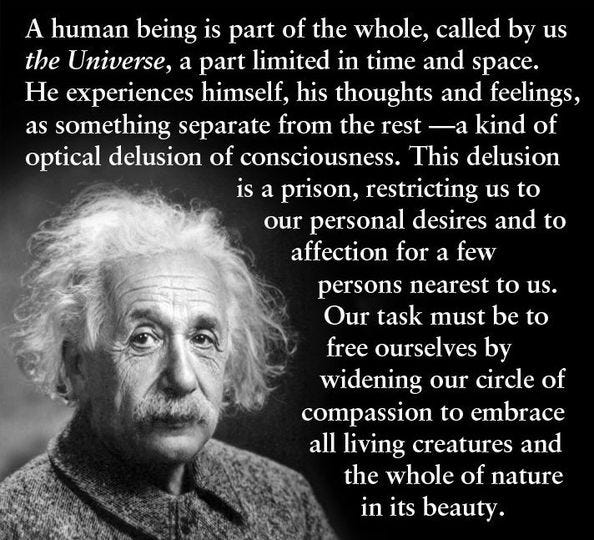Science as a Religion
My father had a scientific worldview. A bright, ambitious man from Canada, he came to the United States after WWII to get his PhD in electrical engineering at MIT. He even wrote a college textbook published by Addison-Wesley later in his career. As far as traditional religion goes, he was raised Protestant but as an adult became an atheist. (He would claim agnostic, a distinction in theory but not in practice).
In my childhood I was a pretty good student. School came easy to me. I graduated 11th in my high school class of 310 without much effort. In college I dabbled with engineering and pre-med as majors before settling on pre-law. It turned out that I hadn't developed good study habits and the large classroom lecture style of teaching in college didn't work well for me. So out with the hard sciences and in with the soft sciences.
All of that is simply to explain I am not averse or unfamiliar with Science. I am quite familiar with it.
But let's get to it.
We all have ideas about how the world works, models of reality. And then we view the world through that lens.
Most of the time the ideas that form our worldview are picked up and shaped from the environment we live in: from our parents, from our friends, from our schools, from the books, movies, TV, and social media we consume.
Of course these models aren't static. In many cases an individual grows up in a particular environment and inherits certain ideas but then finds those ideas inconsistent with what they see out in the world or experience in their lives. I know a number of people who have left the religion of their parents, sometimes at considerable personal expense, over things like theological inconsistencies or treatment of LGBTQ folks or simply a desire for greater freedom.
There is an interplay of what we believe affecting what we see out in the world and what we see in the world affecting what we believe. Preconceived notions and confirmation bias versus open-mindedness and intellectual flexibility. Stability versus change.
Let me suggest now that Science is also a religion or at least a worldview.
There is a core theology: Big Bang, inert chemicals mysteriously turning into life, single cell life mysteriously turning into complex life, complex life developing self-awareness, death of the physical body resulting in annihilation.
All ideas based on limited observation (and, in my opinion, conveniently ignoring certain evidence).
Note also the susceptibility to rigid fundamentalism. See, for example, Richard Dawkins and Sam Harris.
Science is great at explaining things it can measure and observe. But that's the catch, right? If it can't be seen or observed, Science thinks it doesn't exist. And that's just not the case. There is a massive portion of Creation that exists outside what we can currently observe. Massive. If you think this is it, that your body and this planet is all there is, let me suggest that your model of reality is far too small.
I know that may be hard for some of you to believe - and I'll try not to speak in absolutes or in ultimate truths here - but I can tell you what I have experienced and encountered in my own life:
- spirit guides
- past lives
- deceased relatives
- extraterrestrials
- Jesus/Christ consciousness (still a little fuzzy on the distinction)
- God itself (not a humanoid form but the original source energy of which we are all a part. The anthropomorphic model needs to be retired!)
For me, there is no question whatsoever that these things exist. I have experienced them first-hand.
And I write about them now, at some risk to my professional reputation and credibility, in the hopes that I can expand your conception of who you are.
There is mystery to this universe. So much more we still have to learn.
I encourage you to open yourselves up the mystery, the beauty, and the idea that you are more than you currently think you are.




